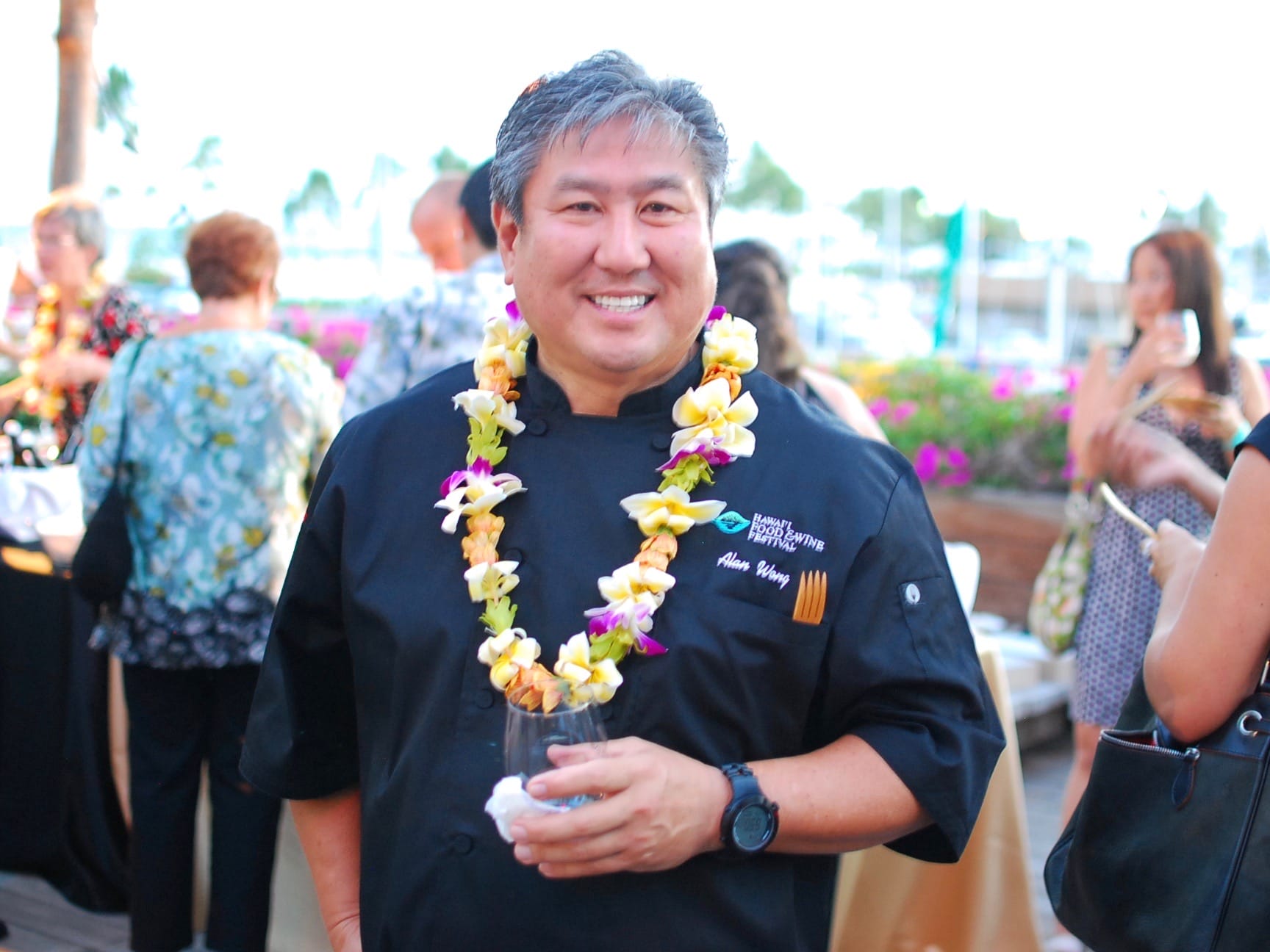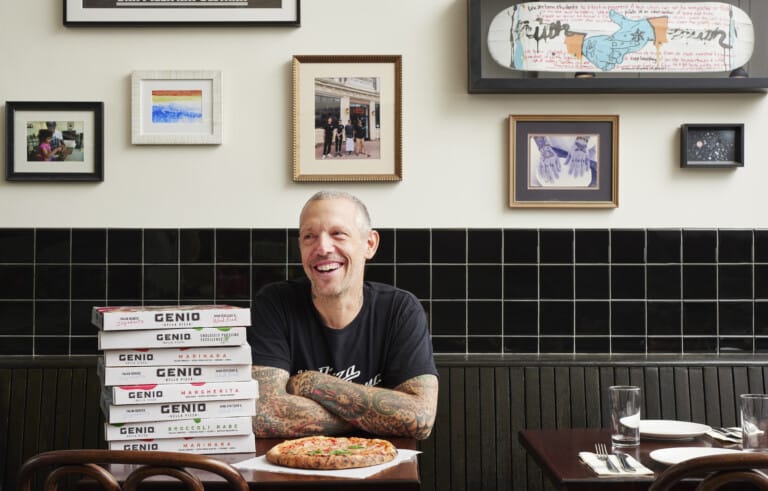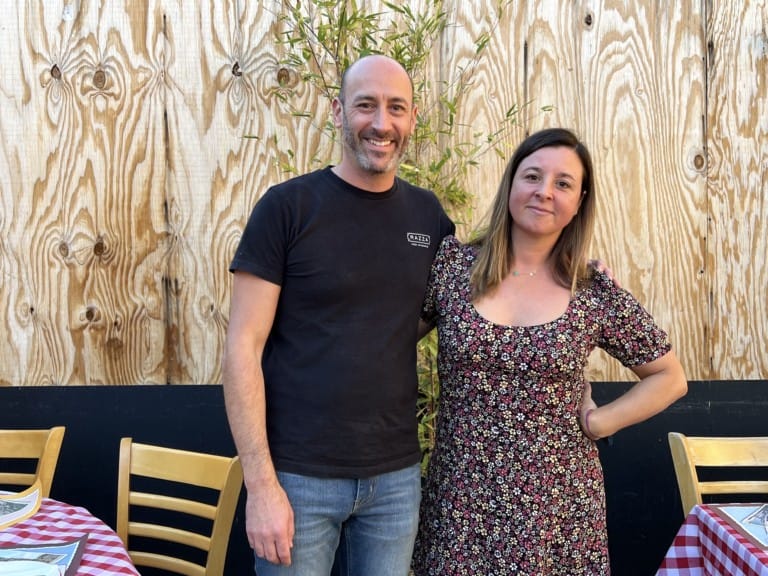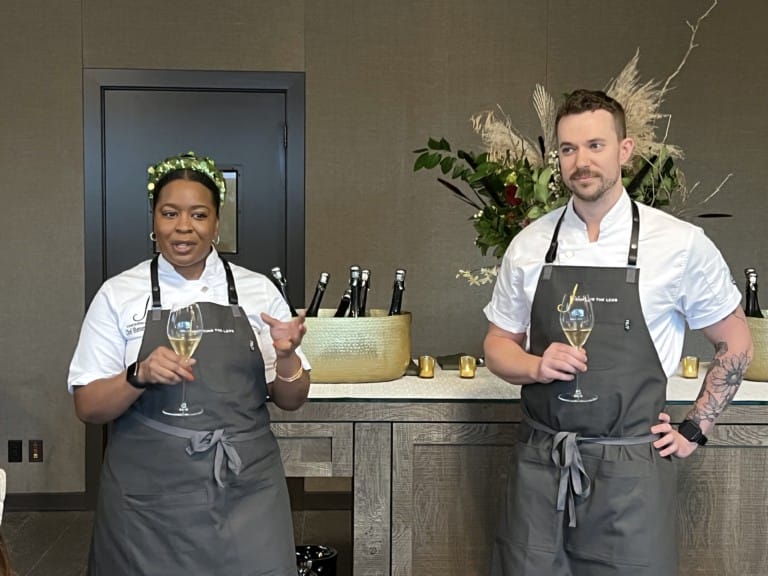Alan Wong is an Oahu-based culinary giant. The powerhouse chef is one of the driving forces behind Hawaiian Regional Cuisine, which celebrates the islands’ native cuisine and ingredients, and co-chairs the complementary Hawaii Food & Wine Festival with good friend Roy Yamaguchi. Wong also owns and operates restaurants like Alan Wong’s and The Pineapple Room, and Amasia on Maui. We spoke at the Hawaii Food & Wine Festival’s Enter the Modern Dragon event, and he shared several culinary insights.
Josh Lurie: In what ways is it easier or harder to put together the second festival?
Alan Wong: It’s easier in the sense that you have one year of practice, so you learn from your mistakes, and the difficult part is, how do you out-do what you did the first time and exceed the expectations of the people?
JL: What are the markers for success with Hawaii Food & Wine this year and going forward?
AW: The markers for this year, every event, the numbers have exceeded last year’s. We’ve added a fourth night. We were able to invite over 60 chefs, versus 40 chefs. And the eventually marker will be how much we make net, that we actually give to charity.
JL: What is your favorite part about being a restaurateur and chef?
AW: You’ve got to be in the business because you like making people happy. You like to see people happy. You like to see people smile. You’re in the hospitality business. You’re in the service business. You’re in the people business.
JL: What’s the biggest challenge about operating multiple restaurants on multiple islands?
AW: The challenge will always be how much control you actually have, and what goes out. If you had one restaurant, and if you were in there every night, you can control everything. When you expand, you have to relinquish a little bit of that, and you have to rely on people. When you’re in business, and you deal with people, they can be your biggest joy and biggest frustration at the same time.
JL: Since you just opened Amasia, what was the inspiration behind that restaurant, and how is that different from what you’re trying to do on Oahu?
AW: It’s the first time we’ve done this concept, but every cuisine around the world, every culture around the world, will have something similar, where you gather around a hibachi or get together and have small bites and a beverage and talk story. For us in Hawaii, it would be the hibachi or the pot luck. We call them pupus. I went into an office and they asked me, these executives from the mainland, “Okay, what’s going to be the name?” I said, “Pupus.” It did not go over very well. The name is not Pupus. It’s Amasia. That is our concept in Hawaii, pupus. Hibachi on Hawaii is one form. It’s a way of getting together. Food brings people together. In Japan, you may call it izakaya. In Spain you might call it tapas. Every culture has that. It’s casual, informal, you’re sharing and talking story.
JL: What do you look for when you’re hiring someone to work in one of your kitchens?
AW: The utmost thing is attitude. Right next to attitude is honesty.
JL: How can you tell that right away?
AW: It’s your intuition. It’s your gut, and how you interview and how you ask questions.
JL: How do you feel about signature dishes? Do you see them as a positive?
AW: Signature dishes are positive in a sense that, you’re thinking about going out to dinner, you remember a dish and you go out to a restaurant, “I’m hungry for this.” You get a dish so popular, say ginger crusted onaga, that is our most popular entrée on the menu. I kid you not, the guy working the station for one year would have done over 10,000 of them. Then you get some customers saying, “Can’t you get more creative with onaga?” Okay. I take it off, try to do something else with onaga and get tons of special requests, “Ginger crusted onaga. Ginger crusted onaga.” You get tired of that, so you just put it back on the menu. But you know, when you go out and get hungry for a certain dish, it’s in your head, that taste you remember. Then the key is, can you be consistent? If you’re consistent, people come back for it all the time.
JL: Is there a chef you’ve never had a chance to cook with that you’d most like to cook with?
AW: There are a lot of talented chefs today in the entire world that I would like to cook with. You know who I really like is Grant Achatz of Alinea. I’ve had his food many times. Actually we did do an event together, but that was before, when he was a cook with Thomas Keller.
JL: Is there anything that you don’t enjoy eating?
AW: Innards and brains.
JL: When people think of Alan Wong, what would you to be known for?
AW: I would like my legacy to be the people, people that I’ve helped grow and learn, the people I’ve helped get to a higher level, people that have learned, that I’ve taught them something and hopefully helped them be a chef at their own restaurant, or be a General Manager or Beverage Director one day, that would make me very happy.









Leave a Comment